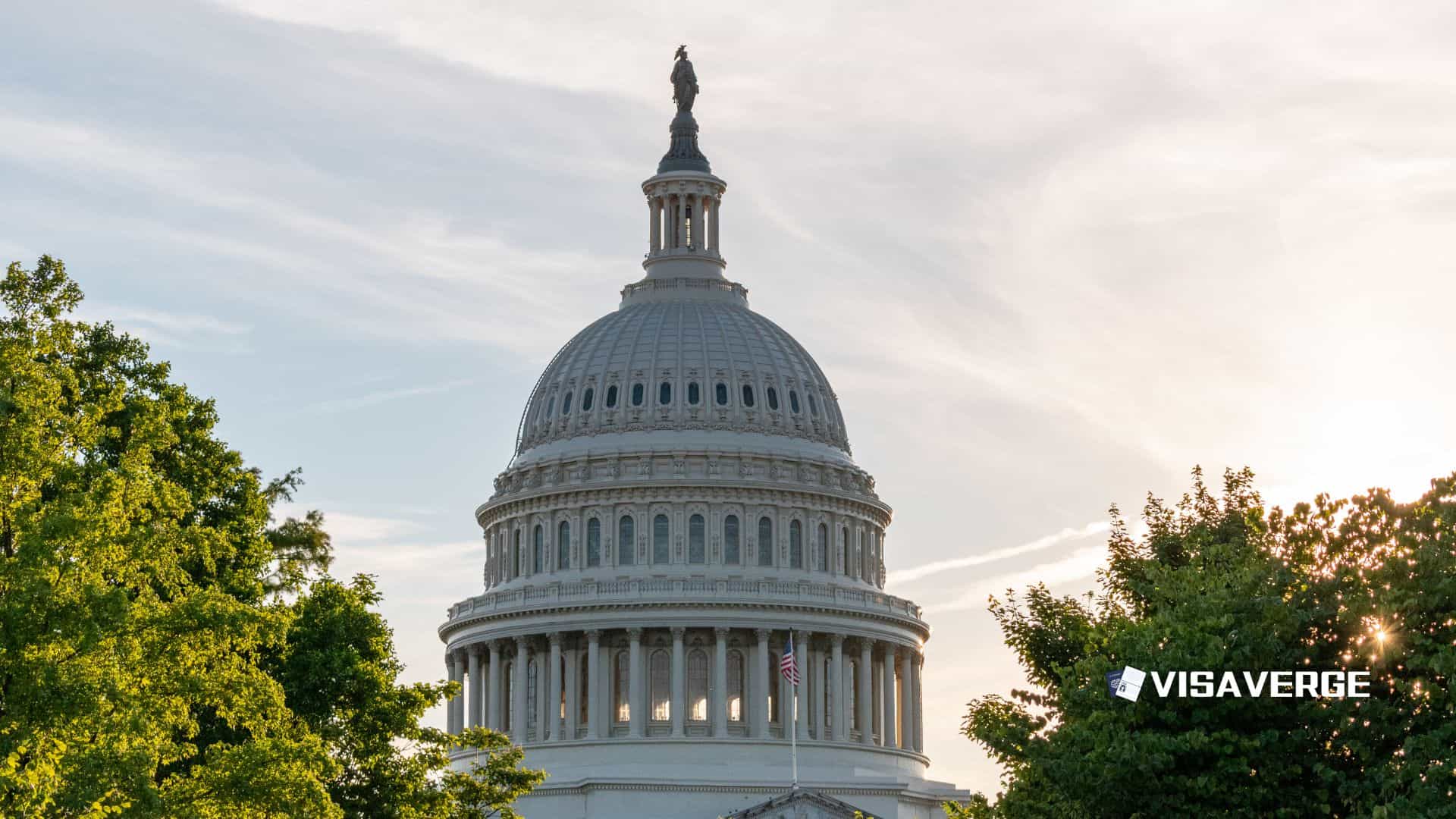(UNITED STATES) Noncitizen veterans say they are living with steady fear as the second administration of President Trump moves forward with a broad campaign of removals that makes no exceptions for military service. Since early 2025, federal immigration enforcement has intensified across the United States 🇺🇸, with arrests and removals targeting a wide range of people, including former service members. Advocates say promises that service would speed citizenship have not matched reality, leaving many at risk as Trump deportations ramp up again.
Officials have not carved out protections for veterans or their families. Immigration and Customs Enforcement operations have widened to sanctuary cities and sensitive locations such as schools, hospitals, and places of worship, reflecting a tougher stance that applies across categories. The change marks a clear break from the prior approach under President Biden, when field officers were told to consider a person’s military service before deciding whether to move ahead with removal.

Advocacy groups and researchers estimate that over 100,000 noncitizen veterans live in the country. Many served honorably, built families, and put down roots. Yet a growing number now limit travel, skip medical appointments, or avoid public events because they fear checkpoints and surprise visits. Some have spoken publicly about feeling abandoned after years in uniform. Others report friends leaving the country on their own — so‑called self‑deportation — out of fear they will be detained without warning.
Policy shifts since 2025
Under the Biden administration, ICE guidance framed prior military service as a “significant mitigating factor” when making case decisions. That policy gave some officers discretion to pause or close cases involving veterans or their immediate relatives.
That protection ended in April 2025, when the Trump team rescinded the guidance and stated that military service alone does not shield a person from deportation. The new direction is blunt: immigration status and any violations will drive case outcomes, not a veteran’s service history.
This shift fits into a broader plan launched in 2025 to expand arrests and removals nationwide. Operations now reach into places that were usually off‑limits, such as clinics and schools, and there are no set exemptions for groups long seen as sympathetic, including noncitizen veterans. Administration officials argue that uniform rules are fairer and clearer. Veteran advocates counter that service members were told their path to citizenship would be faster and more certain, and that changing the rules now puts them in danger.
The renewed push comes alongside larger moves to grow detention capacity and funding. The administration’s enforcement agenda, including the “One Big Beautiful Bill Act” signed in July 2025, directs more money to detention and field operations. Supporters say strong enforcement is needed to restore order. Critics say the approach sweeps in people who pose no public safety risk and ignores the promises made to those who served.
Human impact
For veterans in mixed‑status families, the risk reaches everyone under the same roof. A traffic stop can trigger a larger review. A routine background check for a job or housing application can surface an old removal order.
Detention often leads to:
– Family separation
– Sudden job loss
– Severe health stress
Community groups report that some veterans now keep “go bags,” arrange child care plans with neighbors, and share lists of attorneys in case someone goes missing. Many veterans describe feelings of abandonment after years in uniform; others have chosen self‑deportation out of fear.
“Wearing the uniform in the past does not stop a removal now.”
Veterans’ groups warn that detaining or deporting former soldiers can have ripple effects on morale, recruitment, and public trust. Families who relied on a veteran’s VA health care or disability payments may face sudden hardship if the veteran is detained or sent abroad.
Legislative and legal responses
Lawmakers have begun to push back.
- Rep. Mark Takano has introduced bipartisan legislation aimed at forcing the Department of Homeland Security to identify immigrant veterans and give them an opportunity to obtain lawful status.
- The proposal would also extend and ease citizenship application timelines for those who served.
Supporters say the bill is a practical step that meets veterans where they are — many are older, have complex service records, and need predictable deadlines. The measure faces a difficult path in Congress but reflects growing concern among members who hear from veterans in their districts each week.
According to analysis by VisaVerge.com, the return to blanket enforcement has erased the modest protection veterans briefly had under prior guidelines. The site notes that community legal clinics are swamped as former service members seek to review old paperwork, update addresses, and prepare for interviews or court dates with little notice. Attorneys say even small errors in past filings can now lead to serious consequences.
Paths to naturalization and official resources
The military naturalization process exists, and some veterans still qualify and should pursue it quickly. The U.S. government explains basic eligibility on the USCIS: Naturalization Through Military Service, which can help former service members and their families learn steps and timelines.
Official resource (preserved as in original):
– USCIS: Naturalization Through Military Service
While this resource outlines the path, today’s enforcement climate means delays or past mistakes can still place a veteran in removal proceedings before a case is complete.
Where operations are appearing
Field reports since early 2025 describe broader and more visible operations across urban and rural areas alike. Officers are appearing in settings that used to be avoided to reduce fear in communities, including:
- Sanctuary cities with local rules limiting cooperation
- Schools and nearby transit stops during drop‑off hours
- Hospitals and clinics, including some VA facilities
- Places of worship, especially during large gatherings
Advice for noncitizen veterans and families
Community lawyers advise veterans to take proactive steps:
- Gather and secure service records (DD‑214, NCOERs, medical records).
- Keep proof of residence and update addresses with relevant agencies.
- Consult accredited representatives or immigration attorneys about pending applications.
- If contacted by officers, ask for a lawyer and avoid signing documents on the spot that could waive rights.
Important warning: There are no automatic exemptions for veterans under current policy. Broader enforcement across sensitive locations and rising detention capacity — supported by 2025 funding — mean the risk is real.
Outlook
Administration officials argue that the law must be applied consistently and point to serious offenses and prior orders as reasons to remove noncitizens, even if they once served. Veteran advocates respond that many noncitizen veterans were recruited with promises of a quicker route to citizenship and often come from mixed‑status households, carrying service‑related trauma along with old paperwork problems.
The coming months will test whether Congress can pass a narrow bill focused only on veterans and their immediate families, or whether the debate becomes part of a wider immigration fight. In the meantime, noncitizen veterans and their families face the difficult choice of staying out of sight or stepping forward to seek relief in a system that offers fewer shields than it did just a year ago.
Frequently Asked Questions
This Article in a Nutshell
Beginning in early 2025, immigration enforcement intensified under the Trump administration, expanding arrests and removals into sanctuary cities and sensitive locations. In April 2025 officials rescinded ICE guidance that had treated prior military service as a significant mitigating factor, making military service alone insufficient to prevent deportation. Advocates estimate over 100,000 noncitizen veterans live in the U.S.; many now avoid appointments, limit travel, or self‑deport out of fear. Lawmakers, including Rep. Mark Takano, introduced bipartisan proposals to identify immigrant veterans and ease citizenship timelines. Community legal clinics are overwhelmed as veterans seek to correct paperwork and apply for relief. USCIS resources on military naturalization remain available but do not eliminate enforcement risks under current policy.













